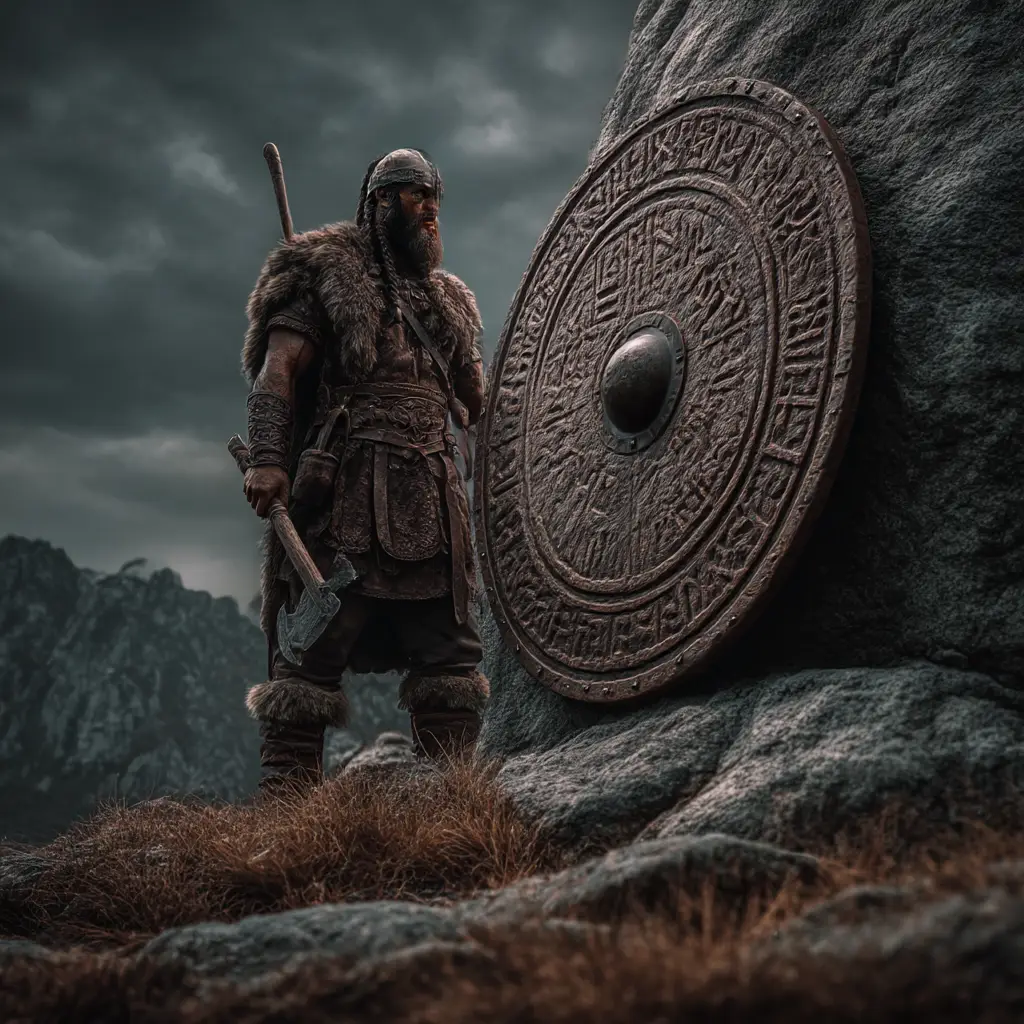After the tragic burning at Bergthorshváll, where Njáll Þorgeirsson, his wife Bergþóra, and their family were consumed by fire, the saga turns to one final, powerful arc — Kári Sölmundarson’s revenge. Kári, Njáll’s son-in-law and one of the few to escape the flames, becomes the embodiment of vengeance, loyalty, and ultimately, forgiveness. His story closes the saga and transforms it from a tale of feud and destruction into one of redemption and peace.
Driven by grief and honour, Kári vows to avenge those who perished in the burning. With remarkable courage and persistence, he pursues the burners across Iceland and beyond its shores. His journey takes him through the rugged landscapes of the north, across stormy seas, and into the courts and strongholds of his enemies. Many of the burners meet their deaths at his hands, often in single combat, reflecting both his skill as a warrior and his deep moral resolve.
Despite the bloodshed, Kári is not portrayed as a man consumed entirely by vengeance. His actions are guided by a strong sense of justice and loyalty to his fallen kin. The saga presents him as a figure caught between the demands of honour and the weariness of endless feud, mirroring the central tension of Icelandic society at the time — the fragile balance between law and vengeance.
Eventually, Kári’s pursuit of retribution leads him to the Orkney Islands, where he encounters Flosi Þórðarson, the leader of the burners. By this point, years have passed since the burning, and both men have endured exile, hardship, and loss. The meeting between Kári and Flosi marks one of the most moving moments in all Icelandic literature. Instead of continuing the cycle of killing, they choose reconciliation. Kári forgives Flosi, recognising the shared suffering that the feud has brought upon them both.
Their reconciliation is sealed when Kári marries Flosi’s niece, uniting the two families that had once been divided by blood and fire. This act brings closure to decades of violence and symbolises the restoration of social harmony and spiritual peace. Through Kári’s forgiveness, the saga resolves its long conflict and elevates the story from tragedy to moral reflection.
In its conclusion, Njáls Saga shows that true honour lies not only in courage and vengeance but also in mercy and understanding. Kári’s journey from revenge to reconciliation stands as one of the most profound examples of personal transformation in medieval literature, reminding readers that peace, though hard-won, is the highest form of victory.


